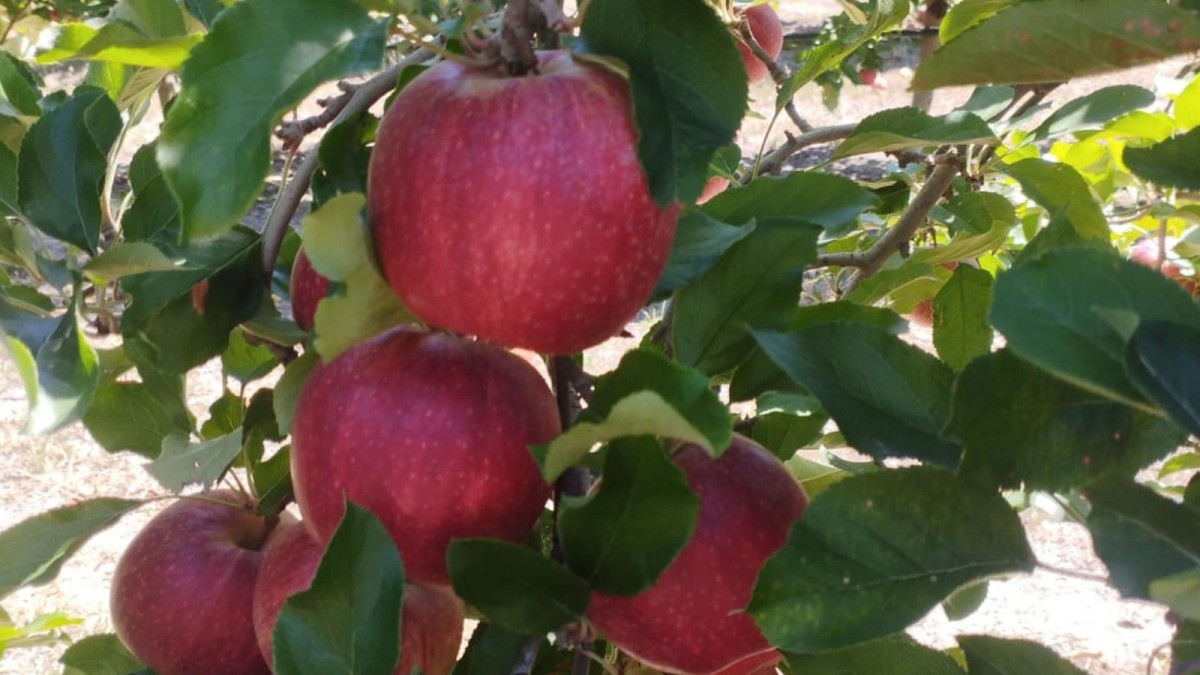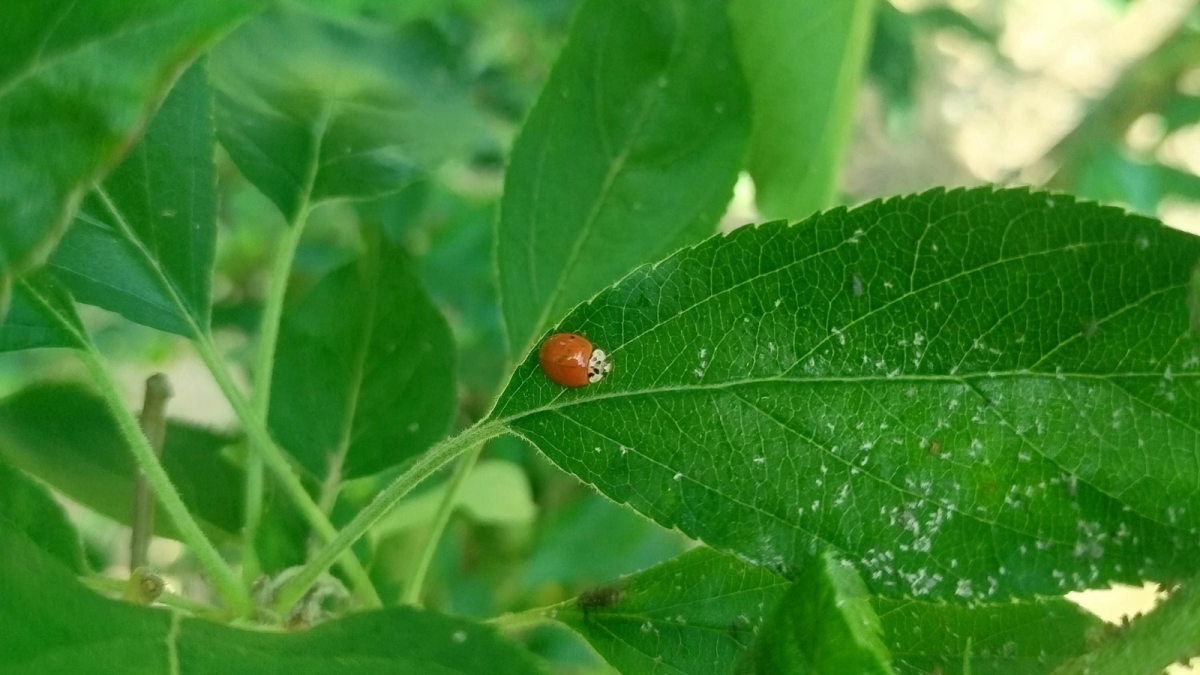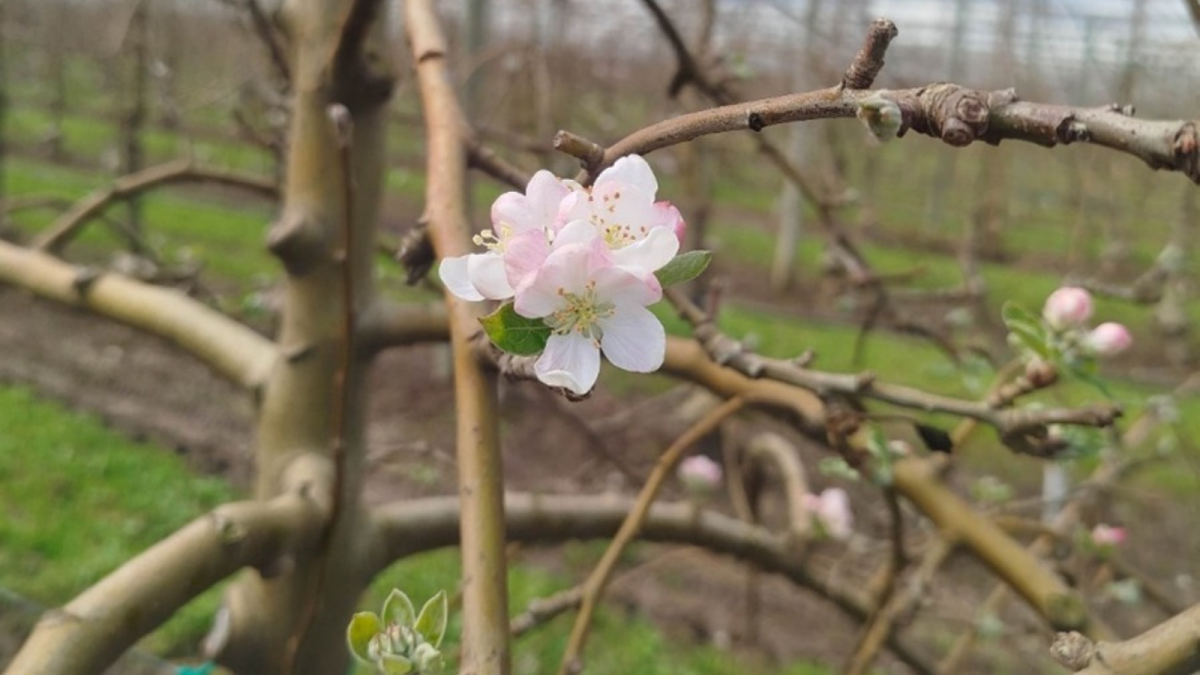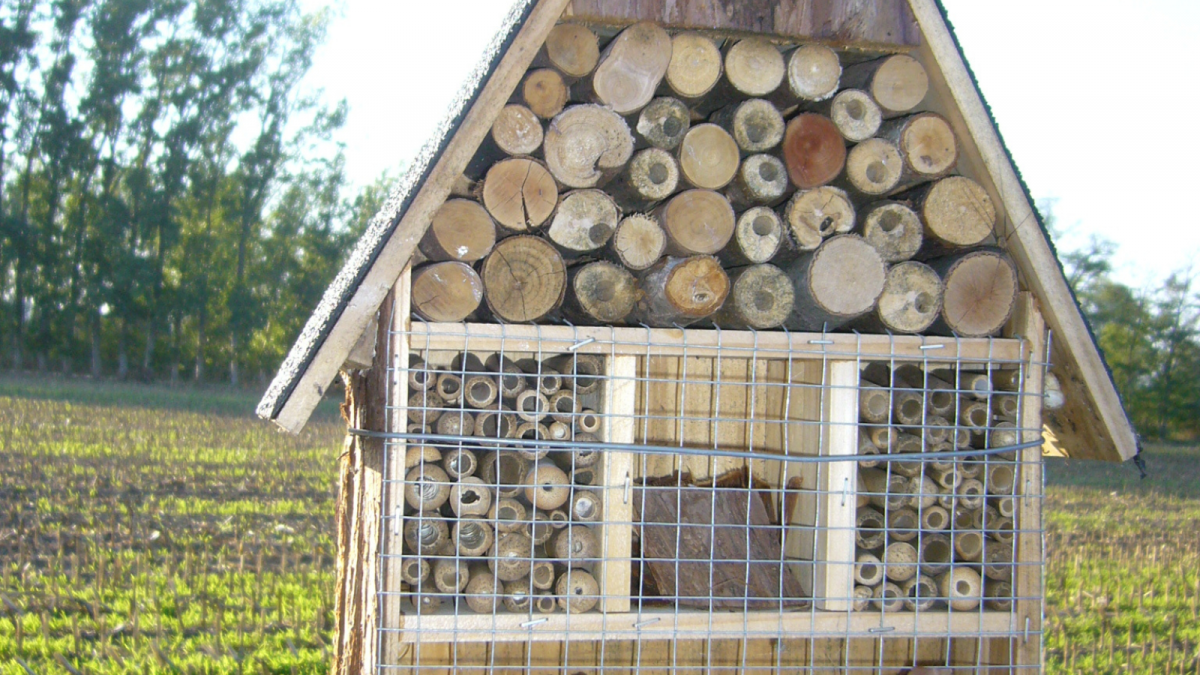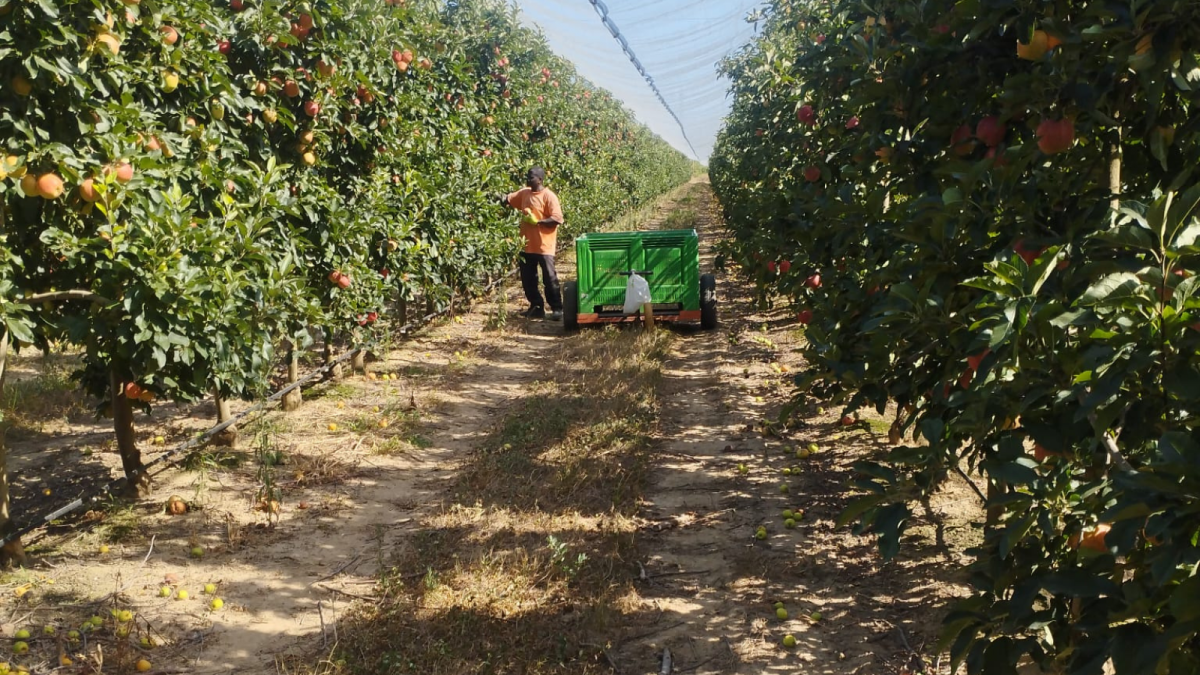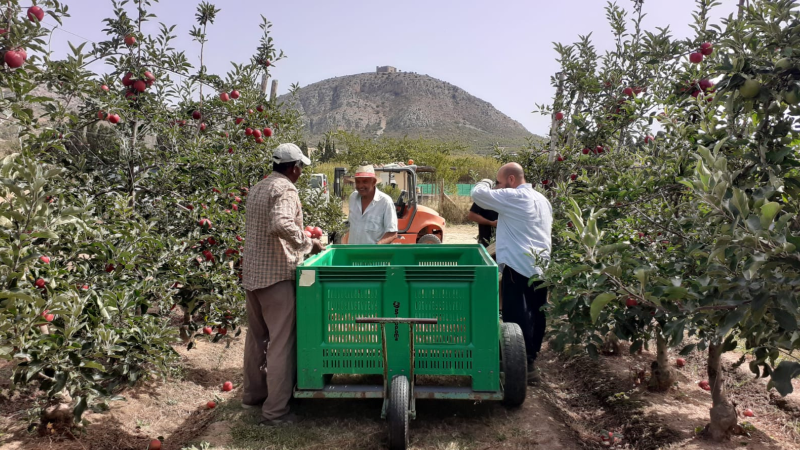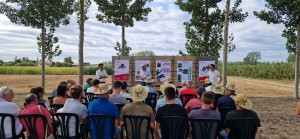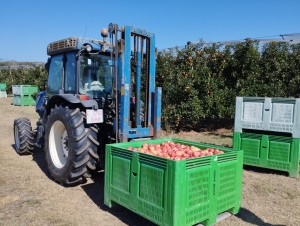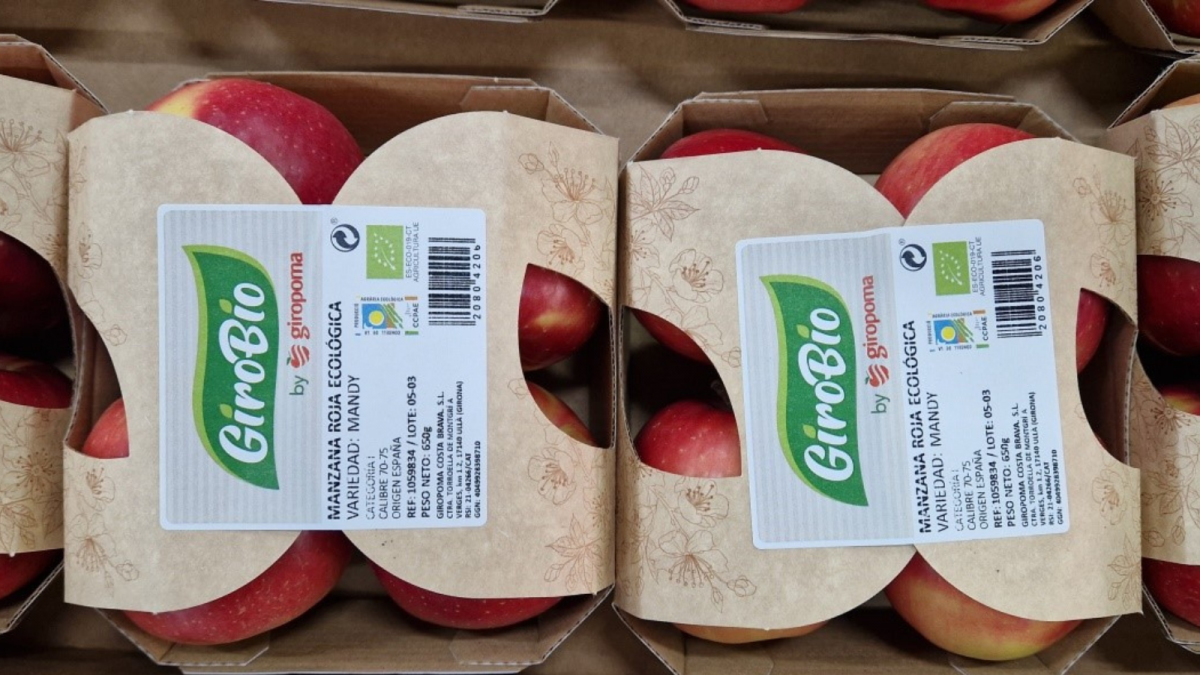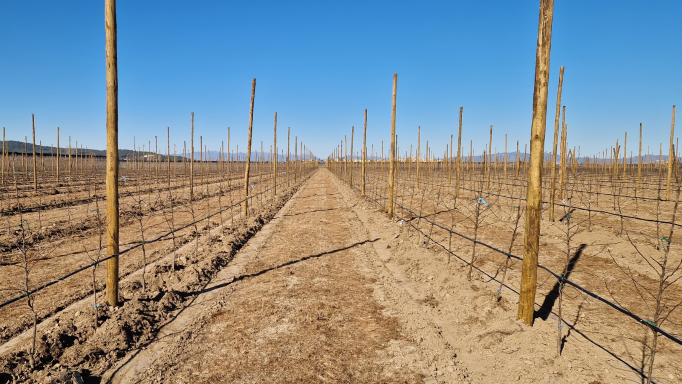This new season’s apples are expected to be of very good quality, despite the fact that production will be slightly lower than last year. The weather conditions, which have been very favourable throughout the production cycle, have been key to obtaining high quality fruit with an excellent taste profile.
In this sense, this year’s spring has been particularly beneficial, with rainfall that has favoured optimum fruit development and has allowed significant savings in irrigation water. These conditions have contributed to obtaining apples with good size, firmness and a high sugar content, a fact that foresees a season with very good prospects in terms of quality.
Even so, for years, Giropoma has been committed to efficient and sustainable water management, with the use of irrigation systems based on soil humidity sensors. This technology makes it possible to optimise water resources, while ensuring the water needs of the crops and maintaining the quality standards that characterise the company’s production.
Thus, the new harvest will begin this August with the Gala variety, which will kick off a season marked by effort, innovation and commitment to local, healthy, quality fruit. This is a striated apple with a red colour on a burnt yellow background, crunchy, sweet and with a touch of acid that gives it a very good balance of flavour. Its optimum harvesting time is in August, and it can be found on the market until March.
About the varieties of Giropoma
Giropoma currently markets eight different varieties of apple, one of which is Gala, but there are also other varieties such as Golden, Red Delicious and Granny Smith, all under the umbrella of the Manzana de Girona PGI. They also produce Fuji and three club varieties: Regalyou, marketed under the Candine® brand; Cripps Pink, under the Pink Lady® brand; and Cripps Red, under the Joya® brand.
All these types are ideal for maintaining a balanced and healthy diet. They are high in water, vitamins and minerals, have antioxidant properties and are rich in fibre, which helps the digestive system to function properly and contributes to preventing cardiovascular problems and inflammatory diseases.

